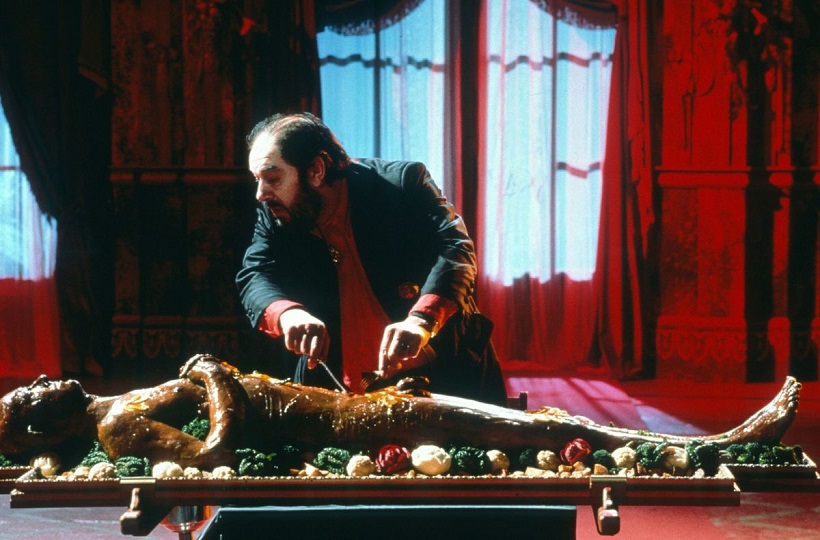Richard Dawkins was recently described in Breitbart as a ‘professional atheist’. The epithet was added in a news article that reported his most recent twitter contribution to philosophical scholarship, the advocacy of cannibalism.
Dawkins’s contribution came in the form of a Tweet:
 What if human meat is grown? Could we overcome our taboo against cannibalism? An interesting test case for consequentialist morality versus “yuck reaction” absolutism.”
What if human meat is grown? Could we overcome our taboo against cannibalism? An interesting test case for consequentialist morality versus “yuck reaction” absolutism.”
We need to remember that tweets are thought bubbles. An idea expressed in about 140 characters will have little substance but, like a mustard seed can be carried a long way by little more than a breath.
To put his bubble into context, Dawkins did not actually advocate that we kill Uncle Arthur and consume his most succulent bits and pieces. Rather, he suggested the growth of human ‘clean meat’ in a laboratory for the sole purpose of human consumption. Mind you, we are entitled to conclude that, if it is ok to kill oxen to eat, food being the operative principle here, Dawkins can have no moral objection under the principle of cannibalism to the slaughter of a pre-stunned member of someone’s family so that the chosen member can be butchered, basted and roasted to taste.
Dawkins thought that an interesting aspect of his suggestion was that it would be a “test case for consequentialist morality versus ‘yuck reaction’ absolutism.” Thus in Dawkins’s mind, his suggestion is just an ethical laboratory experiment, the results of which will establish … what?
Well, nothing of consequence, actually. Just a wry and telling smile on Dawkins’s face. He seems to suggest that if people were asked to eat laboratory generated human flesh, some would say no, because it was immoral, others because they don’t like the taste; and for those marooned without food by a plane crash in the Andes, necessity would compel them to cannibalism.
Dawkins’s little experiment tells us nothing about the morality of cannibalism; Dawkins’s tweet tells us a lot about him and the capacity of some scientists to talk about things they don’t really understand.
The problem with Dawkins’s experiment is not that some would eat and others wouldn’t. Given the Andes event, we know that in some situations, people will do everything necessary to survive. But that isn’t the problem. The problem is, as I suggest above, if human flesh is capable of being food for another human being on every occasion, then they are capable of being slaughtered for food like cattle. That is the unavoidable, logical consequence of Dawkins’s argument and that, Richard, implies that you condone murder.
Richard does not say that, of course. He tries to avoid that unpleasant conclusion by limiting the ‘human flesh’ to lab-grown clean meat, but we must insist that he can’t leave his argument there just so he can play god and prescribe the conditions under which the rest of us can consume human flesh. He wants to be immune from recommending the slaughter of human beings for food, by calling it clean meat. Why is he proposing clean meat from a lab, when meat from an abattoir is just as clean and equally impersonal.
Dawkins’s argument purports to be based on his atheism, his rejection of the existence of a reasonable G_d and with that, the rejection of any revelation; but it finds itself justifying by implication, the murder (sorry, slaughter) of human beings for food. It is really nothing more than Thomas Hobbes arguments writ very small indeed and devoid of Hobbes’s attention to detail. Dawkins sees cannibalism as a religious taboo, as a religious rule imposed by the authority of an Almighty omniscient and omnipotent G_d who does not actually exist. According to Dawkins, since G_d does not exist, the rule against cannibalism does not exist.
But, Dawkins has not really made out his case for cannibalism. There are good reasonable grounds to reject cannibalism based upon the nature of man, on human nature, and that case was made by the Greek philosophers, especially, but not only, Aristotle.
Cannibalism, like child sacrifice and homosexuality, was a symbol of the barbarism that civilised people rejected and kept at a distance. Today it is probably acceptable among the effete philosophers as just another aspect of multiculturalism. What is ironic, however, is that among primitive peoples, the cannibalism that Dawkins seems to be encouraging was actually based on the superstitious religious beliefs that Dawkins rejects out of hand. Go figure!
What does it mean? It means for Dawkins that belief in the one G_d who rejects cannibalism is irrational, but a belief in Dawkins and his superstitious belief in cannibalism are just fine.
Illustration: Allarts/Elsevier-Vendex/Palace Pictures/Miramax.
Got something to add? Join the discussion and comment below.
Got something to add? Join the discussion and comment below.
Get 10 issues for just $10
Subscribe to The Spectator Australia today for the next 10 magazine issues, plus full online access, for just $10.


























Comments
Don't miss out
Join the conversation with other Spectator Australia readers. Subscribe to leave a comment.
SUBSCRIBEAlready a subscriber? Log in